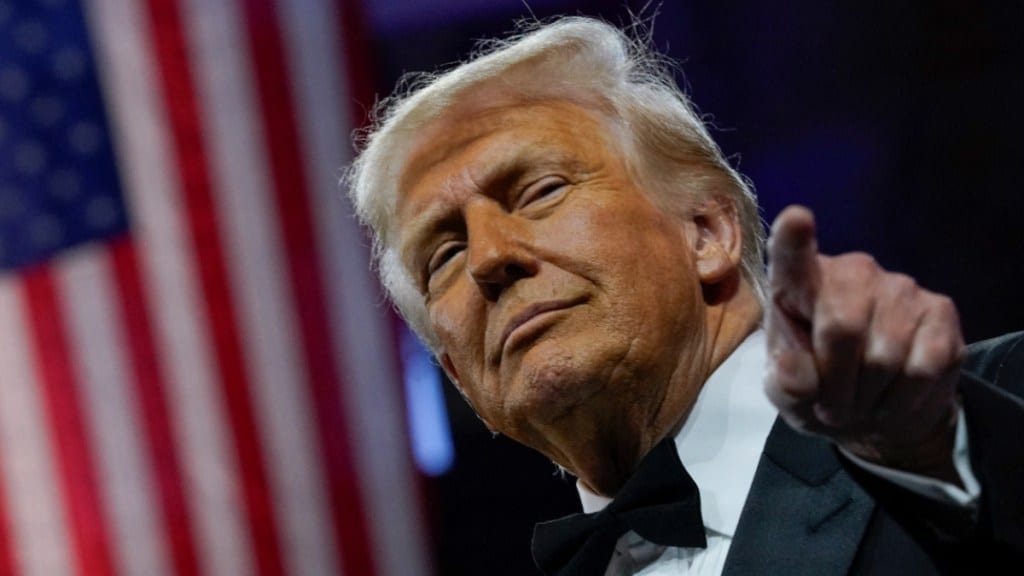While the US government’s decision to suspend the reciprocal tariffs for most countries, except for China, for 90 days came as a relief and should provide some upside to the Indian market in the short term, Kotak Institutional Equities (KIE) said that this does not change the US’s goals, leading to continued large uncertainties for (1) countries (level of tariffs), (2) exporters (new capex and orders) and (3) companies (earnings).
Earlier on April 9, US President Donald Trump announced a 90-day pause on the rollout of reciprocal tariffs on most countries including India. The decision had come just hours apart from the tariff being imposed the same day. The pause applies to reciprocal tariffs above 10 per cent for all countries except China. Simultaneously, Trump had also increased tariffs on Chinese imports to 125 per cent, citing China’s lack of respect for global markets. In retaliation, China too announced additional tariffs against the United States.
In an analysis report, KIE said, “We would assume that the US government will continue to pursue its stated strategic objectives of (1) a reduction in large trade deficits with other countries and (2) reshoring of manufacturing and an unstated objective of a weaker US dollar. It has temporarily suspended reciprocal tariffs for 90 days for all countries (except for China) in order to work out trade deals, although the base tariff of 10 per cent will remain.”
Will other countries make adjustments?
Per analysis by Kotak, other countries slapped with the tariffs will have to meet the US’s strategic objectives. Thus, the US’s trade partners would have to make adjustments to (1) their exports to and imports from the US to reduce their trade deficits with the US, (2) future investments with more new manufacturing capacity to be allotted to the US, (3) tariff and non-tariff barriers for US exports and (4) their currencies. “On the latter, Japan may have to allow for greater appreciation of the JPY, which may also have implications for global capital flows. China seems to be working toward weakening the CNY further,” Kotak Institutional Equities said.
Positive upside for Indian market
The Indian market is being seen to hold up relatively well in the past few days in comparison to other markets. This, per the analysis report by the brokerage firm, is being driven by (1) a relatively low share of exports in India’s GDP, (2) a high share of profits of defensive sectors/companies and domestic sectors in overall profits of the market and major indices, and (3) the narrative of India being relatively better off in the reciprocal tax regime. “The last factor is no longer valid in the short term. Nonetheless, India’s manufacturing progress will likely continue, linked to its ambition and ability to attract investment in manufacturing,” it said.
Kotak Institutional Equities said, “We stay with our cautious stance on the Indian market despite the ‘positive’ development, given (1) the fair-to-full-to-frothy valuations of most sectors and stocks and (2) the continued uncertainties on the reciprocal tariff issue.”
The export-oriented sectors will likely see a rebound in stock prices with the worst-case scenarios being off the table for now. However, it added, the IT services sector’s customers will struggle to take major spending decisions in the uncertain environment while the pharmaceuticals sector would still have to deal with the forthcoming tariffs. The automobile sector has to contend with the 25 per cent import tariff imposed separately by the US on imports.
It is worth noting that Trump, per a report by AP, is considering temporarily halting the auto tariffs he had imposed earlier on the sector in order to give time to car manufacturers to adjust their supply chains. While briefing the media at the Oval Office, Trump said that carmakers required time to reallocate their production from Canada, Mexico and other places, adding “And they need a little bit of time because they’re going to make them here, but they need a little bit of time. So I’m talking about things like that,” the AP report stated.
Monitoring retail trends amid declining trailing returns
Kotak Institutional Equities said that it would be interesting to see if the diminishing trailing returns of the Indian market would have a bearing on the investment behavior of retail investors or not. “They have been price-agnostic investors for most of the past 3-4 years, emboldened by (1) the high returns from the market for a period of time and (2) tempted by expectations of high returns, based on the experience over FY2021-24. In reality, market returns even over three years are nowhere close to expected returns of retail investors (easily north of 15 per cent). In fact, actual returns of most retail investors would be far lower than index returns given (1) the timing of investment; almost half of the money into mutual funds has come in CY2024 alone and (2) the choice of sectors and themes of investment; a decent chunk of money has gone into sectoral and thematic funds at the peak of those sectors and themes,” it said.


